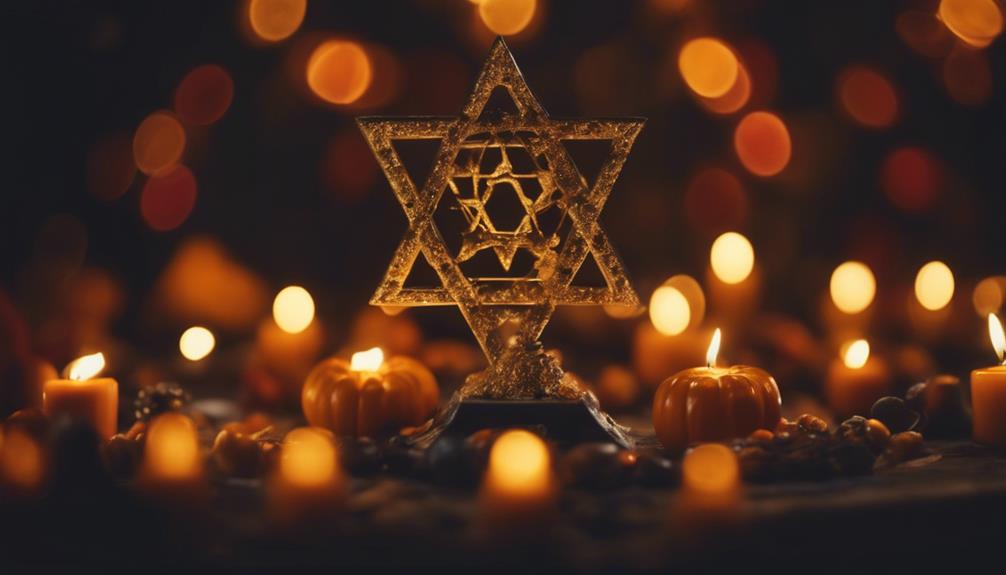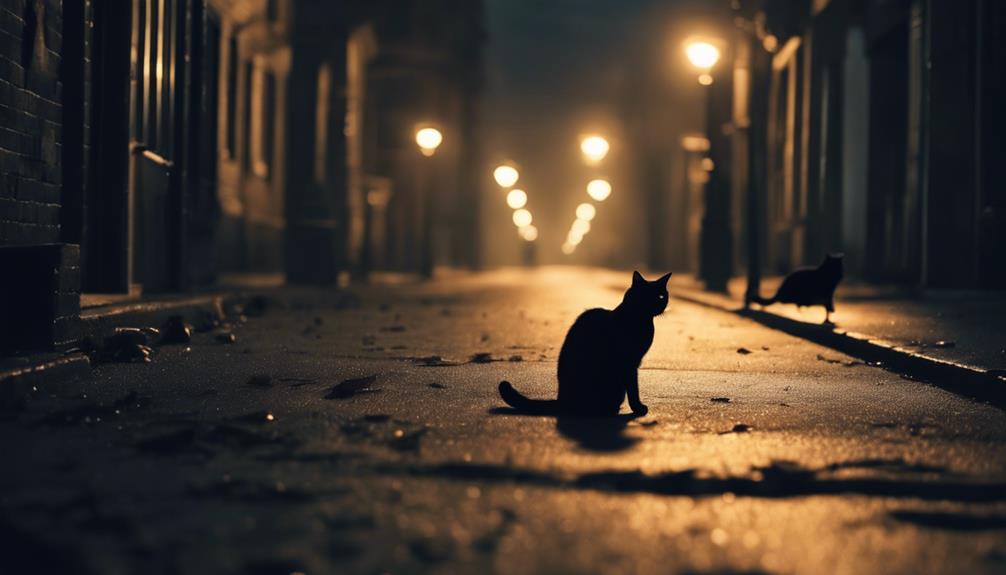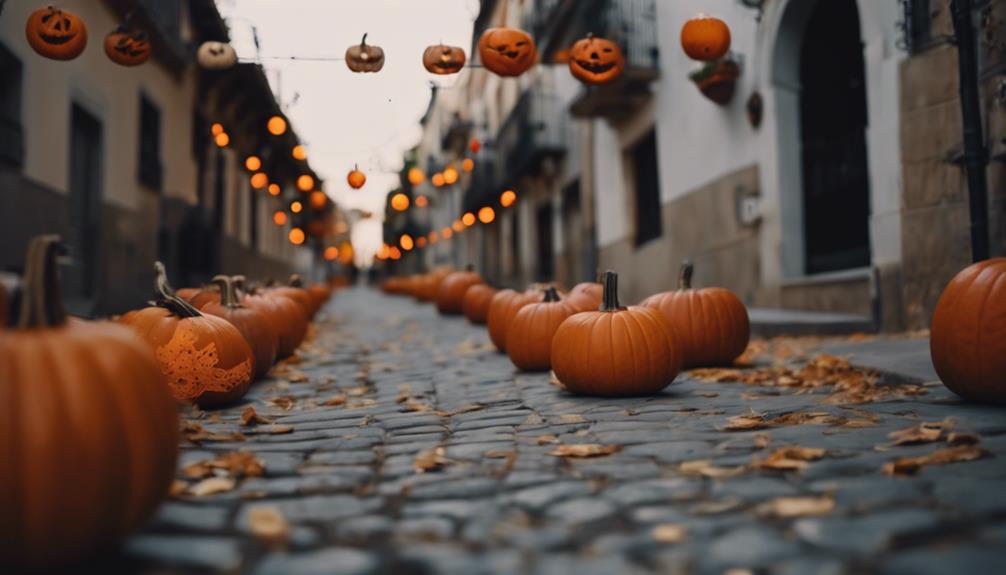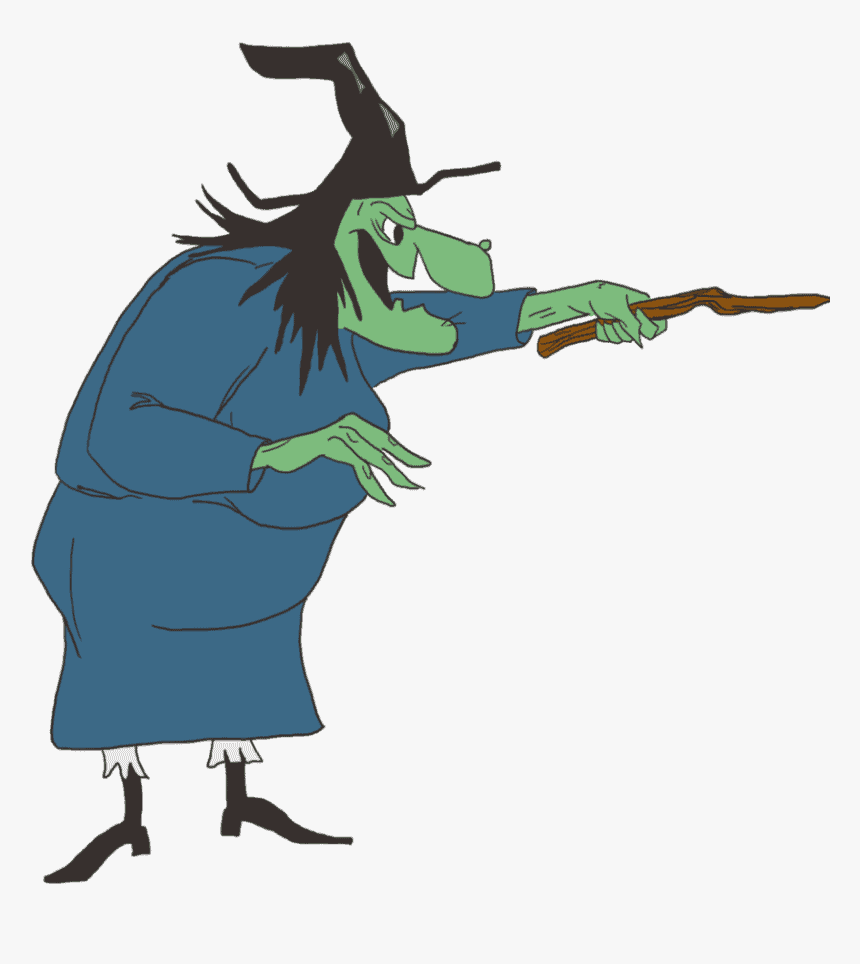Certain religions, like Jehovah's Witnesses, Orthodox Jews, and specific Christian groups, avoid celebrating Halloween due to conflicting beliefs with its origins and values. Additionally, Russian Christians, Muslims, some Evangelical Christians, Hindus, and Mormons have varied reasons for not participating. These range from concerns about pagan associations to prioritizing other religious holidays like Diwali. Understanding these diverse perspectives sheds light on why some religious groups choose not to partake in Halloween festivities. If you explore further, you'll uncover specific insights into each religion's rationale for abstaining from Halloween celebrations.
Key Takeaways
- Jehovah's Witnesses avoid Halloween due to pagan roots and lack of spiritual significance.
- Orthodox Jews and Muslims refrain from Halloween over perceived pagan origins.
- Russian Orthodox Christians may abstain from Halloween due to conflicts with Christian values.
- Evangelical Christians may skip Halloween due to concerns about pagan associations.
- Hindus prioritize Diwali over Halloween, emphasizing light and cultural significance.
Russian Christians
Russian Christians in certain regions may opt out of Halloween celebrations due to their religious beliefs and values. Specifically, Russian Orthodox Christians may choose to abstain from participating in Halloween activities due to the perception that the holiday conflicts with their Christian values. The Russian Orthodox Church, which holds significant influence in Russia, emphasizes the importance of adhering to traditional Christian practices and beliefs.
In line with these religious teachings, some regions in Russia have even implemented bans on Halloween celebrations, reflecting the disapproval of the holiday in certain communities. Consequently, Russian Christians may prefer to engage in alternative autumn-themed festivities that don't compromise their religious convictions. These alternative celebrations allow Russian Orthodox Christians to partake in seasonal events while staying true to their faith.
Jehovah's Witnesses

Halloween isn't observed by Jehovah's Witnesses due to their belief that such festivities are rooted in pagan customs. Jehovah's Witnesses view Halloween as a pagan holiday with no spiritual significance, leading them to abstain from participating in its celebrations.
For Jehovah's Witnesses, holidays are closely associated with pagan customs and idolatry, which goes against their religious beliefs. Instead of partaking in Halloween traditions, Jehovah's Witnesses prioritize worship and spiritual activities.
This means that you won't find Jehovah's Witnesses engaging in Halloween-related events or decorations. Their focus is on maintaining a faith-based life that aligns with their religious teachings. By avoiding Halloween festivities, Jehovah's Witnesses stay true to their religious convictions and dedicate their time to spiritual practices that are in harmony with their beliefs.
Certain Orthodox Jews
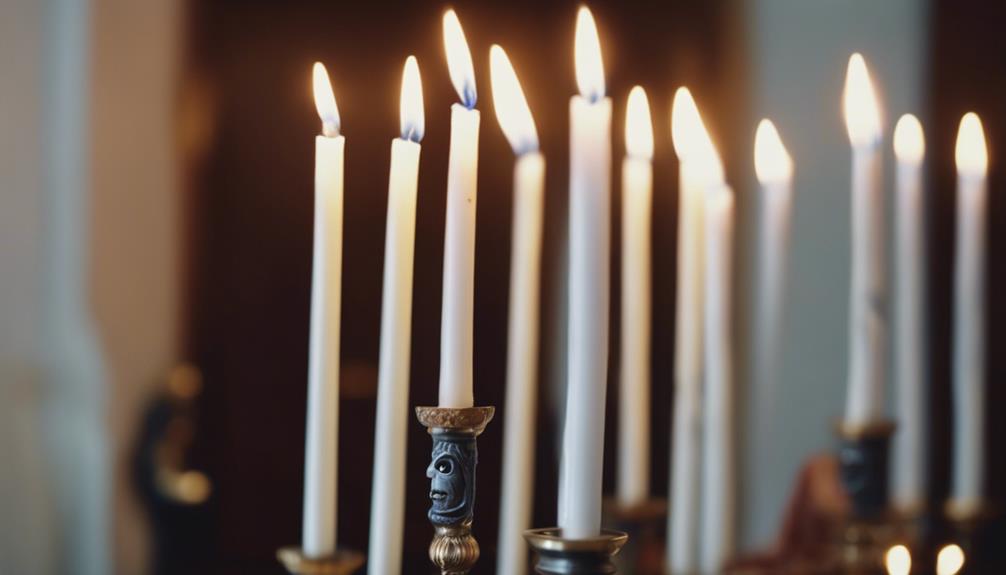
Certain Orthodox Jews refrain from celebrating Halloween due to their religious beliefs. This abstention is often rooted in the perception of Halloween as a secular holiday with pagan origins, conflicting with Orthodox Jewish principles.
Instead, Orthodox Jews may choose to focus on Jewish holidays or engage in alternative autumn-themed celebrations that align more closely with their cultural and religious values.
Orthodox Jewish Beliefs
Orthodox Jewish individuals typically abstain from participating in Halloween festivities due to their religious beliefs. Halloween is considered a secular holiday with religious origins that Orthodox Jews avoid, viewing it as a non-Jewish holiday lacking spiritual significance. Instead of Halloween, some Orthodox Jews choose alternative autumn-themed celebrations. For example, they might focus on harvest festivals or community gatherings that align more closely with their beliefs and traditions.
To provide a clearer comparison, let's look at how Orthodox Jewish beliefs differ from those of Jehovah's Witnesses regarding Halloween:
| Aspect | Orthodox Jewish Beliefs | Jehovah's Witnesses Beliefs |
|---|---|---|
| Participation in Halloween | Typically avoided | Strictly prohibited |
| View on Halloween | Seen as non-spiritual secular holiday | Considered pagan and spiritually detrimental |
| Alternative celebrations | Opt for autumn-themed events | Do not replace with any other celebration |
| Religious reasoning | Avoid Gentile holidays | Reject pagan origins and associations |
These differences reflect the diverse approaches various religious groups take towards Halloween observance.
Religious Observance Restrictions
Typically, individuals following Orthodox Jewish beliefs adhere to strict religious observance restrictions regarding Gentile holidays. For Orthodox Jews, Halloween falls into this category as it's viewed as a secular holiday with religious origins that don't align with their religious beliefs.
Orthodox Jews may choose not to observe or celebrate Halloween due to their religious beliefs and practices. Instead of participating in Halloween festivities, they might opt for alternative autumn-themed celebrations or focus on Jewish holidays that hold spiritual significance for them. This decision stems from a desire to uphold their religious beliefs and traditions while avoiding practices that conflict with their faith.
Cultural Reasons for Abstention
Abstaining from Halloween among some Orthodox Jewish individuals is driven by cultural considerations related to the holiday's secular origins. For certain Orthodox Jews, like Jehovah's Witnesses, Halloween is viewed as a Gentile celebration without any spiritual significance in Jewish tradition.
Orthodox Jewish communities often discourage participation in Halloween festivities due to its non-Jewish roots, opting instead for alternative autumn-themed celebrations or a focus on Jewish holidays that align more closely with their beliefs and practices. The decision not to celebrate Halloween is deeply rooted in Orthodox Jewish beliefs and traditions, which prioritize adherence to Jewish customs and values.
Muslims
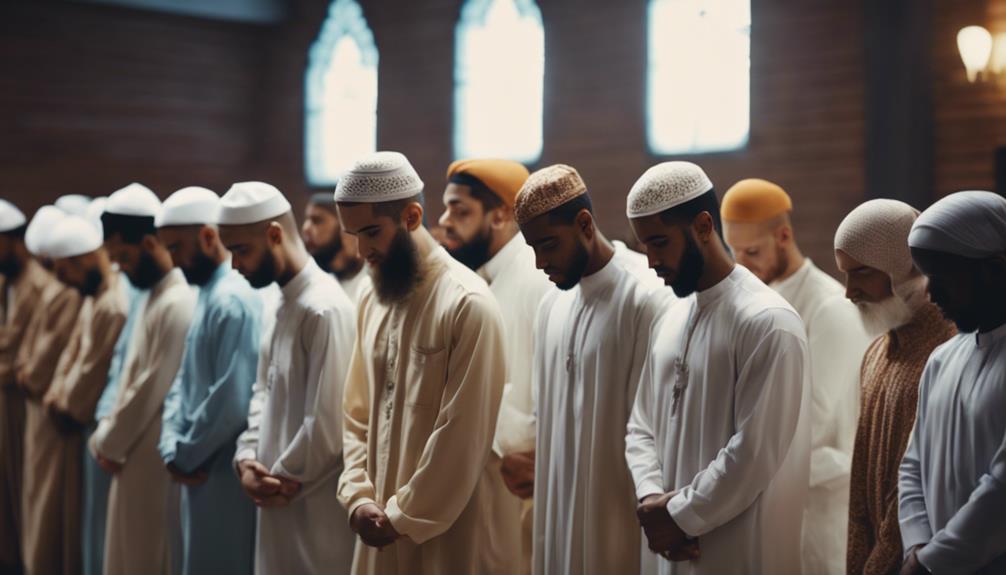
Muslims refrain from celebrating Halloween due to its perceived pagan origins and lack of spiritual significance. The holiday's association with pagan customs conflicts with Islamic beliefs, leading many Muslims to avoid participating in Halloween festivities.
Some Muslims also express concerns that Halloween promotes mischief rather than morals, further deterring them from joining in the celebrations. Instead, Muslims focus on observing Islamic holidays like Eid al-Fitr and Eid al-Adha, which hold significant spiritual importance within the Islamic faith.
Rather than partaking in Halloween traditions, many Muslims may choose to engage in alternative autumn-themed celebrations or simply prioritize their Islamic religious practices during this time of the year. As a result, the majority of Muslims don't engage in Halloween activities, opting to uphold their religious beliefs and values by abstaining from this holiday.
Some Evangelical Christians
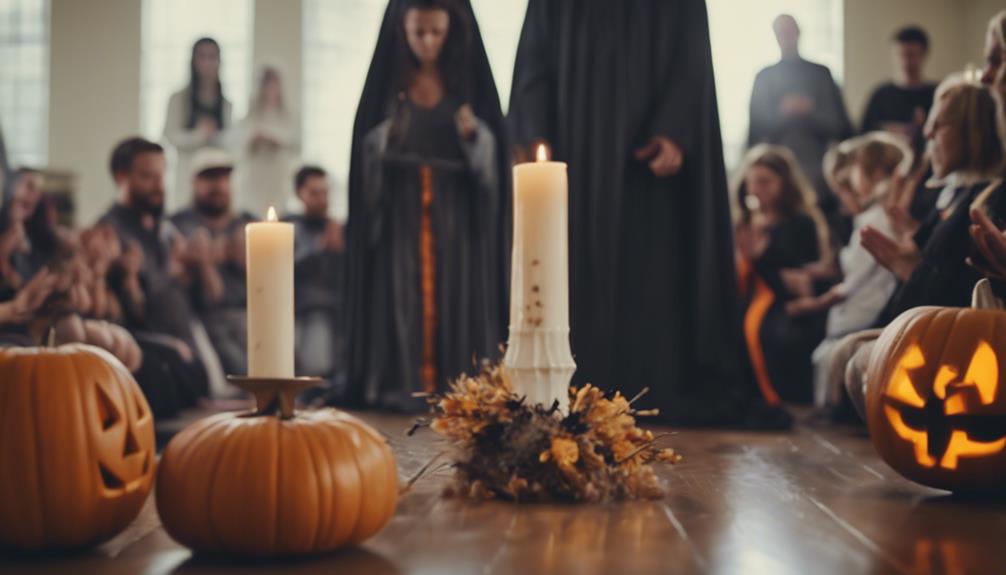
Some Evangelical Christians often choose to refrain from participating in Halloween festivities due to their concerns about its pagan origins and perceived association with devil worship. For Evangelical Christians, Halloween may conflict with their religious beliefs, leading them to seek alternative ways to observe the day. One such alternative is celebrating Reformation Day on October 31st, which commemorates the Protestant Reformation. This provides Evangelical Christians with a meaningful and religiously significant way to spend the day without engaging in Halloween activities they find objectionable.
In the eyes of certain Evangelical groups, Halloween is seen as contradictory to Christian values, prompting them to opt for fall festivals that don't incorporate Halloween elements. By organizing events that align more closely with their faith, Evangelical Christians can still partake in seasonal festivities while upholding their religious convictions. Consequently, some Evangelical Christians may choose to distance themselves from traditional Halloween celebrations, opting for alternatives that are more in line with their religious beliefs.
Some Hindus
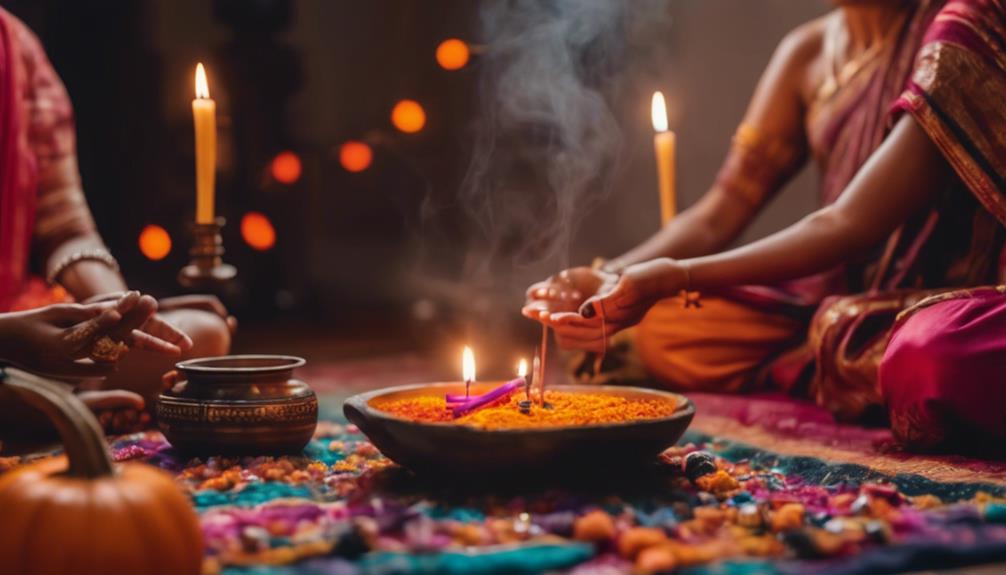
Some Hindus may choose not to celebrate Halloween due to the significance of Diwali, a festival that often coincides with Halloween.
Diwali holds cultural and religious importance, emphasizing the victory of light over darkness.
The preference for Diwali celebrations over Halloween festivities could stem from differing beliefs and values within Hindu culture.
Hindu Beliefs on Halloween
Frequently, Hindus may opt to prioritize celebrating Diwali over Halloween due to their beliefs focusing on the victory of good over evil. Diwali, a five-day Hindu festival of lights, holds significant importance for many Hindus as it symbolizes the triumph of light over darkness and knowledge over ignorance.
Some Hindus may choose to direct their attention towards Diwali, a time for family gatherings, feasting, and the lighting of lamps, instead of participating in Halloween festivities that often involve themes of ghosts and supernatural entities. Since Diwali occasionally overlaps with Halloween, it provides an alternative celebration that aligns more closely with Hindu beliefs.
Due to their religious convictions, some Hindus may opt for autumn-themed celebrations or prioritize Hindu holidays like Diwali over Halloween, reflecting their commitment to traditions that resonate with their values of positivity and enlightenment.
Cultural Differences and Halloween
In considering cultural differences surrounding Halloween, Hindus often prioritize celebrating Diwali over partaking in Halloween festivities due to the significance of light and positivity in their beliefs. Diwali, a five-day festival celebrated by Hindus, holds great cultural and religious importance as it symbolizes the victory of good over evil. Some Hindus may be hesitant to glorify ghosts and instead focus on the positive aspects of Diwali, aligning more closely with their beliefs. Additionally, Diwali occasionally coincides with Halloween, providing an alternative celebration for Hindu families. Due to the spiritual and cultural significance of Diwali, many Hindu families choose to emphasize this festival over Halloween.
| Cultural Differences | Hindus and Halloween | Prioritizing Diwali |
|---|---|---|
| Celebration of light and positivity | Diwali holds significance | Diwali over Halloween |
| Victory of good over evil | Reservations about glorifying ghosts | Spiritual and cultural importance |
| Alternative celebration | Coinciding dates with Halloween | Emphasis on Diwali |
Reasons for Non-Celebration
Reasoning behind the non-celebration of Halloween by certain Hindus often stems from their prioritization of Diwali and its emphasis on light and positivity in their beliefs. Diwali, known as the festival of lights, holds significant cultural and religious importance for Hindus, symbolizing the victory of good over evil and the celebration of prosperity.
As Diwali typically falls around the same time as Halloween, some Hindus may choose to focus on the festivities of Diwali, which may overshadow the observance of Halloween. Additionally, the spirit of Halloween, with its emphasis on ghosts and supernatural elements, may conflict with the beliefs of some Hindus, leading them to avoid participating in such celebrations.
Instead of Halloween, many Hindus may opt for autumn-themed festivities or concentrate on their own religious holidays, such as Diwali, which offer a more positive and spiritually fulfilling way to celebrate during the fall season.
Some Mormons
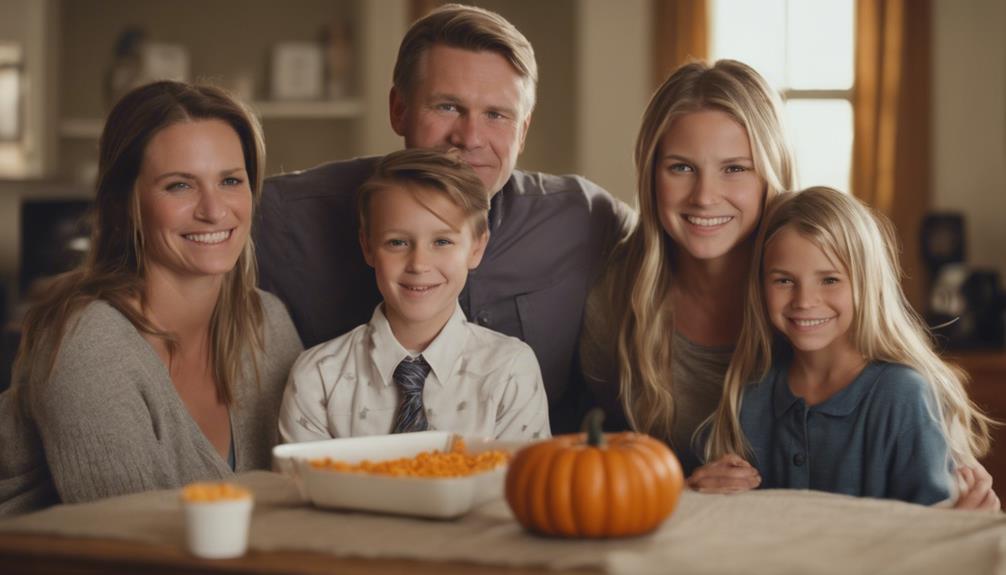
While Halloween celebrations are left to individual choice among Mormons, there's a commonly observed practice of moving festivities to another day if the holiday falls on a Sunday. This adjustment allows Mormon families to prioritize honoring the Sabbath on Sundays, refraining from activities outside the home. The flexibility in celebrating Halloween reflects the value Mormons place on religious observance and family time. By moving Halloween celebrations to a different day when it coincides with the Sabbath, Mormons demonstrate a dedication to their beliefs while still participating in the festivities.
Mormons' approach to Halloween highlights their respect for religious traditions and the importance of dedicating Sundays to spiritual activities. This practice showcases the balance Mormons aim to maintain between enjoying secular celebrations and upholding their faith. Ultimately, the decision to celebrate Halloween among Mormons is a personal one, influenced by individual beliefs and the desire to align festivities with their religious practices.
Reasons for Not Celebrating Halloween
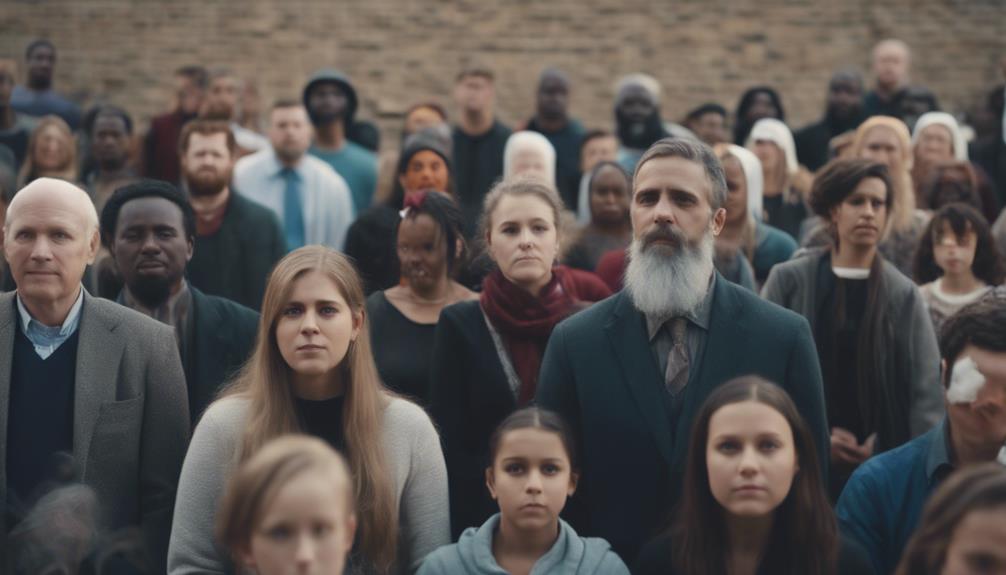
Considering the potential spiritual implications and conflicting beliefs, refraining from Halloween celebrations is a choice made by various religious groups. Some religions don't celebrate Halloween due to its pagan or satanic associations. Concerns often revolve around the emphasis on darkness, evil, or the supernatural during Halloween festivities.
There's a prevalent belief that participating in Halloween could potentially lead to spiritual harm or corruption, which goes against the teachings of certain faiths. For some, Halloween is viewed as a secular event that contradicts their religious beliefs, prompting them to avoid its celebrations. Additionally, there are individuals who choose not to partake in Halloween activities out of fears of promoting fear, violence, or occult practices.
These reasons contribute to the decision of some religious groups to abstain from Halloween festivities, highlighting the diverse perspectives and beliefs that shape their stance on this holiday.
Frequently Asked Questions
What Religion Can't Celebrate Halloween?
You can find that Jehovah's Witnesses, some Orthodox Jews, certain Evangelical Christians, and Muslims typically don't celebrate Halloween due to its pagan roots.
Similarly, some Hindu individuals prioritize Diwali over Halloween festivities.
Mormons may choose whether to celebrate Halloween, often focusing on their own holidays instead.
These religious groups abstain from participating in Halloween celebrations due to various beliefs and practices.
Do Muslims Not Celebrate Halloween?
You're right; Muslims typically don't celebrate Halloween. This holiday doesn't align with Islamic beliefs due to its pagan origins and focus on mischief.
Instead, many Muslims choose to partake in alternative autumn festivities or concentrate on Islamic holidays. By prioritizing their religious principles, Muslims often opt out of Halloween celebrations, emphasizing their own traditions over this particular observance.
Do Catholics Not Celebrate Halloween?
Yes, Catholics do celebrate Halloween. It's connected to All Saints' Day on the Catholic calendar. Some traditions involve attending church services or praying for the deceased. Costumes and candy aren't against Catholic beliefs. Many Catholic families enjoy Halloween while incorporating their faith.
It's a festive time for Catholics to honor their traditions and remember the saints. Halloween is a part of Catholic culture and is celebrated in various ways within the community.
Why Do Some Churches Not Celebrate Halloween?
Some churches don't celebrate Halloween due to concerns about its pagan origins and associations with darkness and the supernatural. Certain churches view Halloween as contradictory to their religious beliefs and avoid participating in the holiday's activities, focusing on alternative celebrations that align more closely with their faith.
The emphasis on fear, violence, or occult practices during Halloween festivities can conflict with the values of certain churches that prioritize spiritual well-being and avoid promoting negative influences.
Conclusion
To sum up, various religions such as Russian Christians, Jehovah's Witnesses, and Muslims don't celebrate Halloween for religious reasons.
It's important to respect and understand different beliefs and traditions, even if they differ from our own.
As the saying goes, 'Different strokes for different folks.'
By learning about these religions and their practices, we can promote inclusivity and cultural awareness in our communities.
